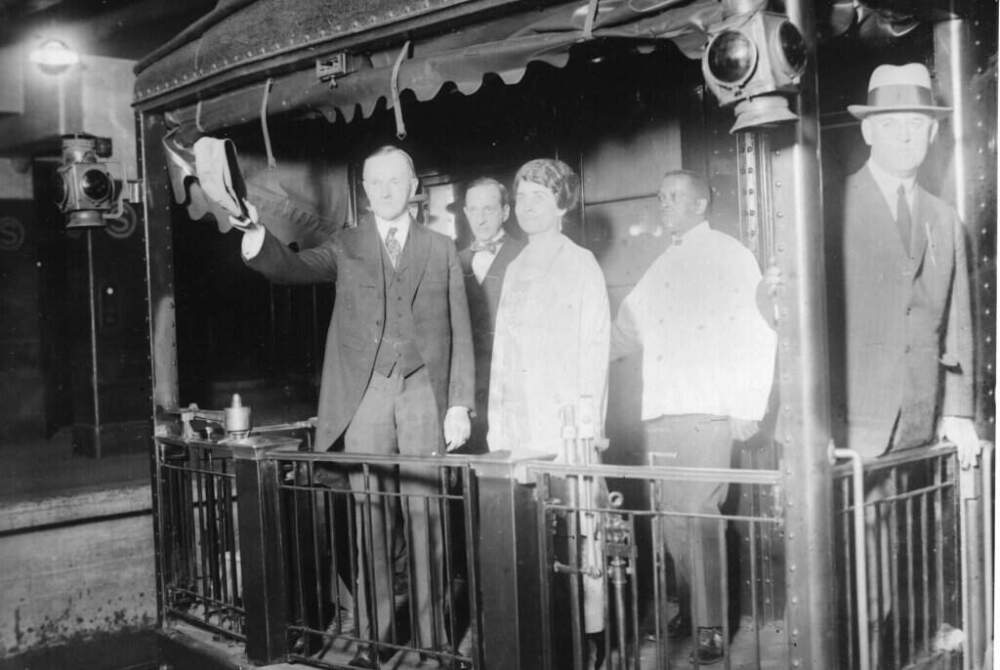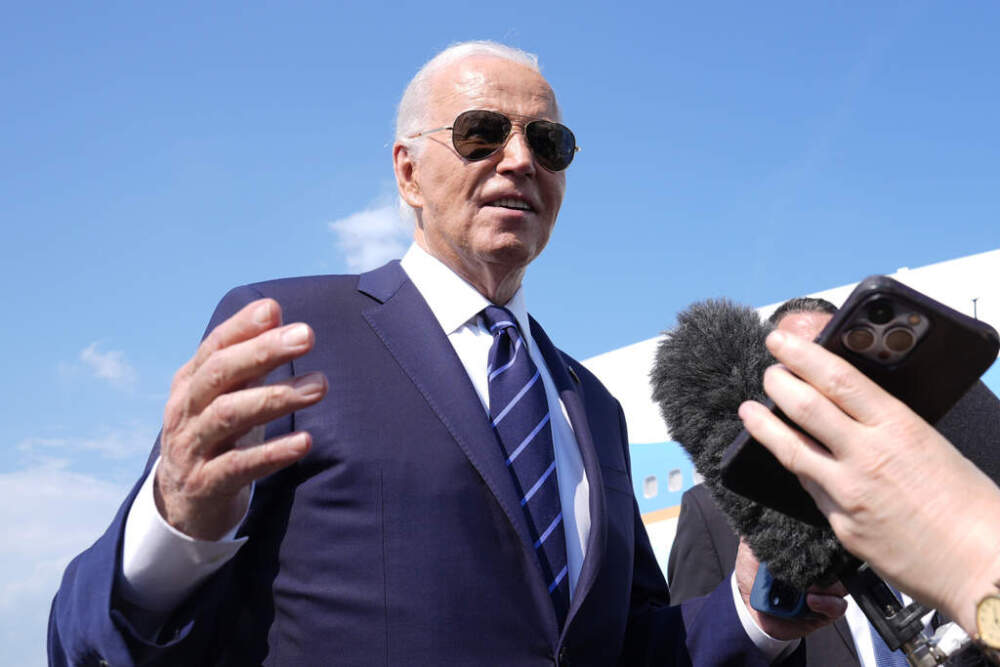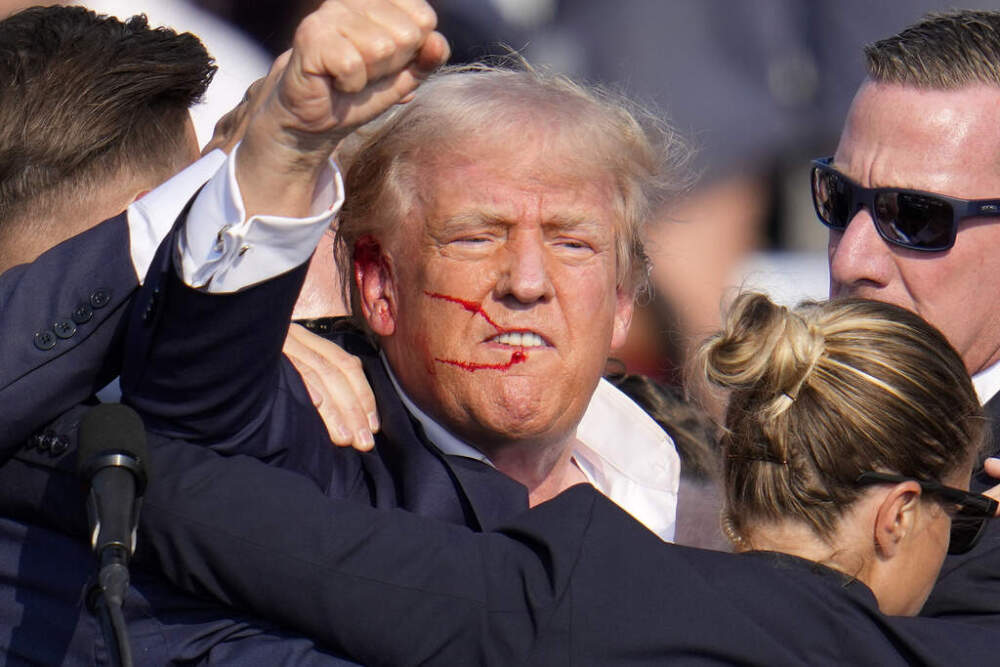Advertisement
Commentary
The secrets presidents keep

The deep anxiety over Joe Biden’s debate performance last month, and ongoing questions about his lack of candor regarding his health obscures a larger issue: Presidents routinely protect their medical history. Some even lie and get away with it.
Let me first document just how common it is for presidents to do this, and then turn to the reasons why they are able to evade telling the truth. But all of this presupposes we have a right to know about their health — which I believe we do.
Given the state of medical knowledge from earlier times, we can’t go too far back to understand each presidents’ health. We can safely begin with Woodrow Wilson (elected in 1912), though, as he offers the most egregious case of deception. Wilson was felled by a stroke in October of 1919, but the public was never told that he was disabled and unable to carry out his duties. His aides and Mrs. Wilson ran the government for 17 months until Wilson’s successor, Warren Harding, was inaugurated in March of 1921.
Calvin Coolidge became president when Harding died in office, but was devastated by his son Calvin Jr.’s death in 1924. Coolidge’s debilitating depression during the remainder of his time in office was unrelenting.
Franklin Roosevelt (1933) knew he was near the end of his life as he suffered from congestive heart failure. But he kept this secret, even after he was safely re-elected in 1944. He didn’t even tell his vice president, Harry Truman, that he was gravely ill. (And he didn’t tell Truman about the development of the atomic bomb either.) The public knew Dwight Eisenhower (1952) had a heart attack in 1955 as it happened on a golf course, but was reassured that it was minor. It wasn’t.

Americans knew that John F. Kennedy’s war time heroics led to a lifetime of terrible back pain. What was not known is that he suffered from Addison’s Disease and that he relied on a steady diet of powerful painkillers.
Lyndon Johnson’s health travails were largely public as he was in and out of the hospital. But he was also haunted by severe depression. Stressed by Watergate Richard Nixon turned to alcohol. He was often drunk at night and spoke to paintings of former presidents on the walls of the White House.
One of the most troubling cases is Ronald Reagan’s Alzheimer’s. Physicians have made the case, as has his son, that Reagan already had the disease during his second term. Anyone who watched him struggle in press conferences would likely agree that something was amiss.
More recently, Donald Trump instructed his personal physician to write an evaluation in 2015 that said if Trump won he would “be the healthiest individual ever elected to the presidency.” The doctor who treated Trump for COVID was not allowed to fully describe his treatment and used comical circumlocutions to avoid saying Trump was given oxygen. Trump also refused to offer a candid answer as to why he spent one Saturday afternoon at Walter Reed Hospital. It was for a colonoscopy.

This brings us to President Biden. An extensive investigation by the Wall Street Journal documents how the president’s staff has shielded him from the press and unscripted events as far back as 2022. Whether Biden has any maladies beyond the indignities of old age or not, the White House has been deceptive. When Americans don’t get to see their president answer reporters’ questions or interact in ordinary ways with other people it creates a falseness—a political avatar — that veers beyond normal White House news management.
Presidents do issue yearly statements from their physicians that offer an overview of their health. But these can be cursory, and it is naïve to believe that these doctors can be candid. When asked why the presidents’ doctors are not made available to the press for questioning, the White House typically says that president has the same right to medical privacy that we expect for ourselves.
Does the public have a right to a more comprehensive report on a president’s health than is in the yearly statement? Medical ethics is a complicated issue and far beyond my expertise as a political scientist. But here is a principle that could guide us: the public has a right to know about health issues that can affect a president’s performance in office.
Advertisement
Ten of the 19 presidents who’ve served between Wilson and Biden tried to keep the public from knowing that they had a serious health issue.
This may seem to be a rather broad standard. Yet an impaired president is a national security risk.
Our current two geriatric candidates face a significant risk of dementia during the next four years as close to 25% of people in their eighties are afflicted with some form of dementia. And dementia, as Ronald Reagan demonstrated, can come on slowly and be difficult to diagnose from afar. Moreover, it is not just dementia that is frightening. If the country is facing a choice as to whether to go to war, a chief executive suffering with a mental illness may not be the best person to be making that decision.
Ten of the 19 presidents who’ve served between Wilson and Biden tried to keep the public from knowing that they had a serious health issue. As such, this behavior is closer to a norm than an aberration.
Presidents are nominated by ordinary voters in party primaries, not by doctors who know their health histories, and voters can’t be expected to be knowledgeable about candidates’ health. There is no easy way out of this problem, but our present dilemma is that Trump and Biden are both too old to be president.

Since his debate with Trump, pressure has built on Biden to drop out of the presidential election. A passable performance in his NATO press conference emboldened Biden who has been strident in rejecting pleas to leave the race. The assassination attempt on former President Trump has rattled Democrats anew as the image of a literally bloodied but unbowed Trump could not offer a more striking contrast to the aging Biden. While the Democrats are divided, the GOP is strongly unified around Trump and vice presidential nominee, Sen. J.D. Vance (R-Ohio), whose selection sends a signal that MAGA may extend beyond a second Trump term.
The Democrats’ problem is that there is realistically no mechanism for removing Biden from the ticket aside from persuasion. That doesn’t appear to be working but Democratic partisans are praying that Biden will model responsible behavior by voluntarily stepping aside.
